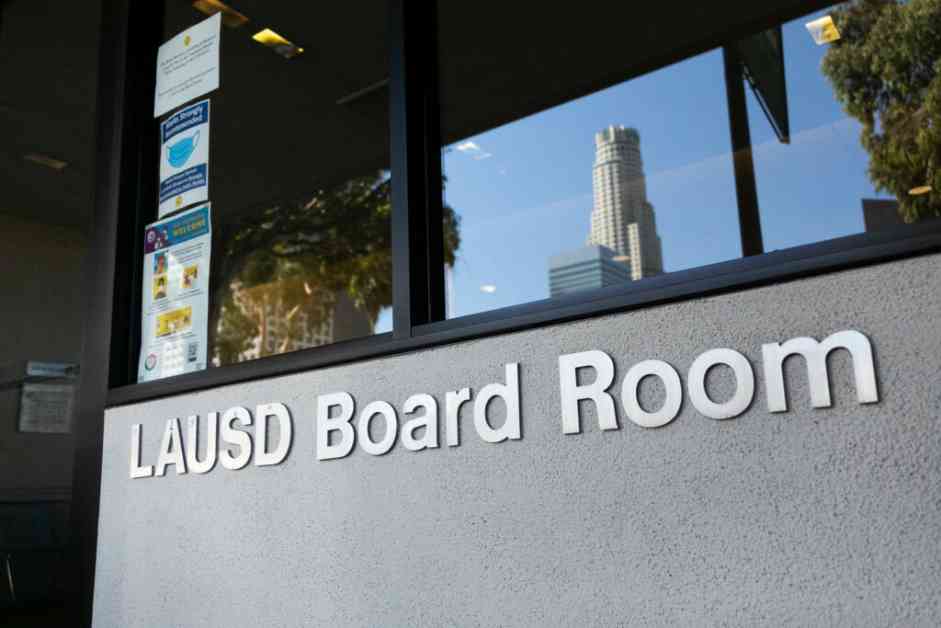**LAUSD Ordered to Release Records in Funding Dispute with Archdiocese**
In a long-standing dispute over federal funding for low-income students in Catholic schools, Los Angeles Unified School District (LAUSD) has been ordered to release records by a Los Angeles County Superior Court judge. This comes after years of conflict between the district and the Archdiocese of Los Angeles over the allocation of Title I funding meant to support educational services for disadvantaged students.
**Background of the Funding Dispute**
Despite promises from Superintendent Alberto Carvalho to resolve the conflict, LAUSD has been accused of denying millions of dollars in federal aid to the Archdiocese of Los Angeles. The archdiocese argues that the district is diverting funds intended for Catholic schools to boost its own student funding. Both the California and the U.S. departments of education have criticized the district for violating federal regulations in its dealings with the archdiocese.
The dispute centers around the calculation of Title I funding for private and religious schools, as mandated by Congress. Under Title I rules, low-income students in both public and private schools are entitled to funding for services like counseling, tutoring, and teacher aides. However, LAUSD’s methods for determining funding eligibility for the archdiocese’s schools have come under scrutiny, leading to a significant reduction in funding for these institutions.
**Controversy Over Funding Calculation Methods**
In recent years, LAUSD changed its method for calculating private schools’ eligibility for Title I funding, leading to confusion and a drastic cut in funding for the archdiocese’s schools. The district shifted to using student registrations for the federal school lunch program as a basis for determining eligibility, a process that required more paperwork and verification by the schools.
This change resulted in a significant decrease in Title I funding for the archdiocese, with funding dropping by over 90% from previous levels. The archdiocese argued that LAUSD’s new methodology was arbitrary and lacked transparency, leading to an unfair distribution of funds that disadvantaged low-income students in Catholic schools.
**Legal Battles and Court Orders**
Following multiple complaints and requests for documentation from the archdiocese, the California Department of Education issued a scathing report criticizing LAUSD’s handling of Title I funding. The report highlighted the district’s failure to justify its decisions and its lack of transparency in sharing crucial information with the archdiocese.
In response to the report, a Los Angeles County Superior Court judge ordered LAUSD to release all relevant documents and data related to Title I funding for the archdiocese’s schools. The court also instructed the district to pay attorneys’ fees to the archdiocese, signaling a significant development in the ongoing dispute.
**Implications for Students and Schools**
The impact of the funding dispute on students and schools has been profound, with many institutions facing a reduction in essential services and resources. Mark Johnson, principal of Bishop Mora Salesian High School, highlighted the effects of the funding cuts on his students, noting a decrease in support services like reading intervention and tutoring.
The archdiocese has been vocal about the detrimental effects of the funding dispute on the education of low-income students in its schools. Paul Escala, the archdiocese’s superintendent of schools, emphasized the importance of equitable funding for all students, regardless of their school’s affiliation.
**Path to Resolution**
While the legal battle between LAUSD and the archdiocese continues, there is hope for a resolution under Superintendent Alberto Carvalho’s leadership. Carvalho has expressed a commitment to addressing the funding dispute and finding a fair and transparent solution that benefits all students.
As the court orders LAUSD to release records and engage in meaningful consultation with the archdiocese, there is an opportunity for both parties to come to a resolution that upholds the spirit of Title I funding and ensures that low-income students in Catholic schools receive the support they need to succeed. The outcome of this ongoing dispute will have far-reaching implications for educational equity and funding allocation in the Los Angeles area.
